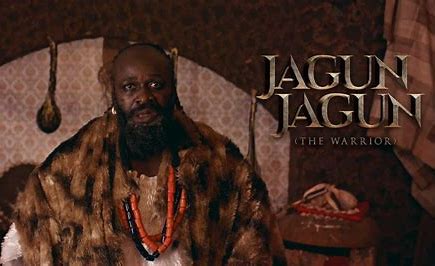Drama plays a significant role in life, as emphasized by Julia Child: “You have to come on with a bang.
You never want to go out with a whimper.
Everything can have drama if it’s done right.
Even a pancake.”
With starters queued on cue, the call is given, “ACTION/ROLL THE PLAY.” For thespians, their work is our play.
The culmination of their efforts results in both entertainment and education.
However, recent times have seen the emergence of numerous movies in Nollywood lacking in these qualities, resembling nothing more than a disappointing mess.
A saving grace remains in figures like Femi Adebayo and other stars who uphold professionalism within the industry.
Although I am inclined to argue that “JAGUNJAGUN” is, in a way, “AGESINKOLE PRO MAX,” It surpasses “Agesinkole” in specific areas such as cinematography, acting, and the utilization of costumes and props.
It revolves around the arts of war and the journey to becoming warriors.
Themes of arrogance, jealousy, and insecurity are explored throughout the narrative.
Beyond these elements, the film beautifully showcases some Yoruba arts and culture, incorporating deity worship, traditional attire, dances, and festivals.
Rituals and folklore are cleverly utilized as technical frameworks and vehicles for sociopolitical commentary.
The film encapsulates the essence of “complete theatre”—a fusion of drama, dance, and music.
These factors underscore the importance of African theatre addressing pressing concerns through an engagement with history, culture, and tradition.
Otherwise, drama and theatre, as crucial aspects of our cultural framework, risk becoming irrelevant.
One of the weaknesses, for me, is the lack of suspense, except for the revelation of Agemo as Iroyinogunkiitan.
Nollywood’s penchant for repetitive structural styles results in a sense of monotony, diminishing the uniqueness of each production.
Another is the fighting technique that is steeped in swordsmanship close to Greco-Roman style.
Regarding that, I would not know if I were overreacting reacting, or I leave that for eminent theatre and arts scholars to dissect.
Notably, the movie hints at a potential sequel, as Ogundiji’s son, portrayed by Ibrahim Chatta, arrives after being murdered by his apprentice “Gbotija,” possibly to claim his father’s legacy.
This “commentary” is based on my initial viewing of the movie; a closer examination may reveal additional strengths and weaknesses.
In summation, “JAGUNJAGUN” is a commendable film, earning a rating of 7/10.
Best regards,
#Adisa
![]()



